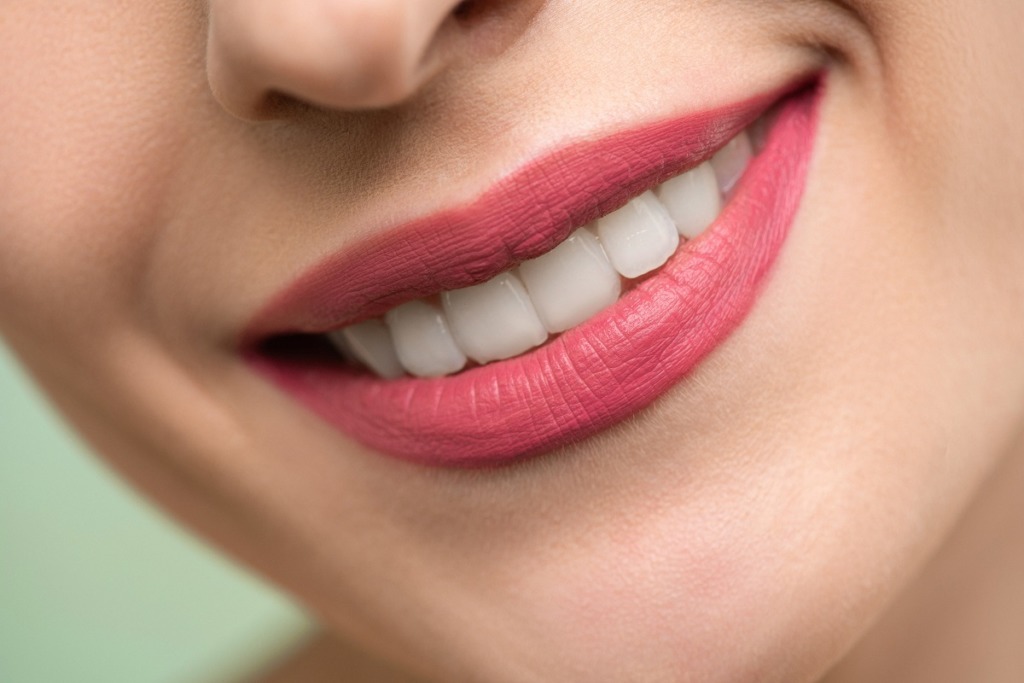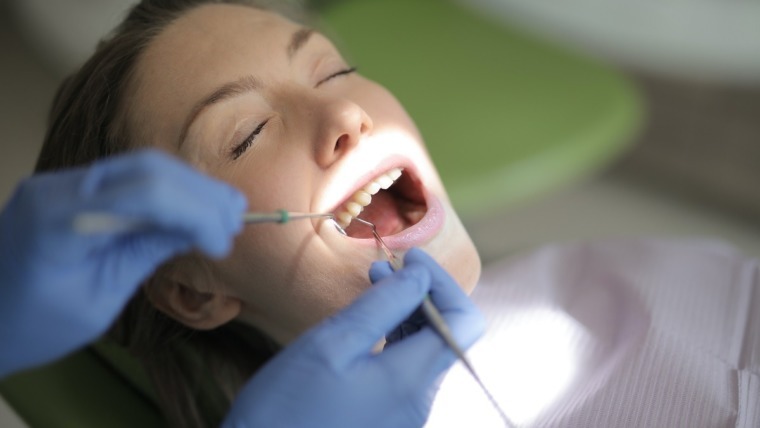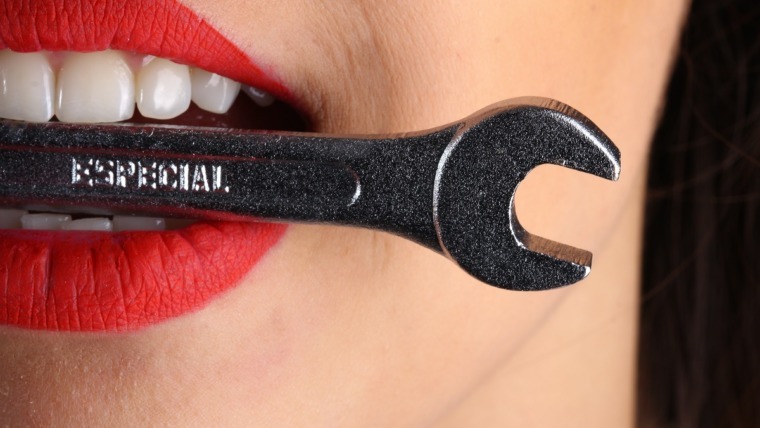
Written by Dr Jeffrey Kestenberg Principal @ Coburg Dental Group
As dentists we speak to our patients a lot about what you should and shouldn’t be eating to maintain healthy teeth. Tooth decay in Australia is still a huge problem and we are diagnosing rampant tooth decay in patients every day. Toothbrushing, flossing and fluoride in the water are not solving this scourge of our modern society. Don’t get me wrong, these measures are extremely important to maintain healthy teeth and gums but they are not the total solution. We all know that sugars in our diet create an environment in the mouth that allow the bacteria in plaque to produce acids that then eat away at tooth enamel to form tooth decay.
There are the obvious foods that we shouldn’t be consuming – lollies, chocolates, fizzy drinks for example, will destroy your enamel slowly but surely. Unfortunately for us, early tooth decay does not cause any discomfort so unless you see your dentist regularly you’ll have no idea that your teeth are rotting away.
On the other hand, there are those foods that make your teeth stronger and whiter or at the very least cause no harm and are generally healthy for us anyway. Even when we were younger as kids, we were taught that drinking milk and eating cheese would contribute to strong and healthy teeth. A number of years ago researchers at the University of Melbourne discovered the protein in milk which allows calcium to be transported to the enamel of teeth to make it stronger. It is now available from dentists to use as a topical ointment to help prevent tooth decay.
Research has also shown that foods that are typically known for being better for teeth are usually those that are full of minerals like calcium and phosphorus, and these foods tend to fall into the dairy and meat categories. So the big question is: what does that mean for people who choose a vegan diet?
The Vegan Diet
People who are considering making the switch to a plant-based diet usually do so because they want to incorporate this diet into a healthier lifestyle. They rarely think that it can have a negative impact on their teeth but it doesn’t have to. The reality is that many vegans make immediate and drastic changes to their diets by completely eliminating two of the biggest food groups-meat (protein) and dairy and these two food groups are primary contributors for the calcium and phosphorus that are essential for healthy teeth and bones. A balanced diet for overall health, according to general consensus by dieticians, includes fruits, vegetables, grains, protein, and dairy.
Dental Problems Which Can Arise
Those who follow a vegan diet will need to be careful of what substitutions they make to source the proteins and minerals which would otherwise be derived from meat and dairy products. Since they completely eliminate meat or dairy products as part of their diet, vegans can inadvertently create dental problems as a result of substituting meat and dairy with grains and sugar products. Those who eliminate meat and animal products for a long period of time may also have deficiencies in vitamins and minerals that are essential to their oral health and indeed their overall health.
As a result of these deficiencies, vegans and vegetarians alike discover that they have a higher risk of plaque build-up, tooth decay and gum inflammation– not just because of the lack of vitamins and nutrients, but because of the substitutions, being increased sugar intake, which they are making.
For example, dental erosion of tooth enamel and cavities in vegans might be the result of a higher intake of acidic foods and sugary substitutes. As an alternative to foods that contain meat or dairy products, vegans may also be consuming more fruits that are high in natural sugar and acidic– resulting in an increased risk of tooth decay. People who rinse their mouths and throats with apple cider vinegar are particularly prone to these issues.
In addition to that, many people who follow a plant-based diet tend to snack or graze on sugary foods between meals, which can result in a higher risk of plaque. Because of this, you must be conscious of the foods you eat and maintain good oral habits by brushing and flossing regularly to prevent these issues, especially if you adopt a vegan diet.
Essential Vitamins & Nutrients
Some of the essential vitamins and nutrients that are key to healthy teeth and bones are calcium, phosphorus, Vitamin B12, Vitamin D, and iron. It’s important to incorporate these into a vegan-friendly diet. But fortunately, there are some alternative ingredients or foods that you can include in your meals to get these essential vitamins and nutrients.
Calcium
A deficiency in calcium can result in a higher risk of gum disease and tooth decay. While most calcium-products are dairy, there are some vegan-friendly alternatives that you can include in your diet.
Get some calcium into your diet by drinking non-dairy beverages that are fortified with calcium, such as soymilk, or almond milk. Other options are tofu, beans (especially, edamame), and green, leafy greens – like kale, spinach, and bok choy. Taking calcium tablets may also be helpful but overdosing on these may lead to atherosclerosis or hardening of the arteries.
Phosphorus
This is one of the main minerals that your body needs, as it supports calcium uptake. Although this mineral is abundant in primarily meat and dairy products, phosphorus is so abundant in foods that it is likely that you are getting enough of it.
There are some vegan options which are high in phosphorus. Plant-based alternatives are soybeans, nuts and nut butters, whole grains, lentils, pumpkin seeds and sunflower seeds.
Vitamin B12
Vegans are commonly deficiently in Vitamin B12. It is important for the health of nerves, blood cells and to produce DNA. It is primarily found in non-vegan foods. Vitamin B12 is essential to your overall health, and coming up short on it could be detrimental to your whole body – not just your teeth.
Some sources of B12 that are vegan-friendly are fortified plant milk such as soy milk, tempeh, algae, seaweed and mushrooms. Other options to get that daily requirement are fortified milk-alternatives, some cereals with added vitamin B12, and supplements of this essential vitamin.
Iron
When patients start to feel tongue inflammation or see redness of the tongue or sores in the mouth, they will often come to their dentist to determine the cause of the issue. This can be caused by an iron deficiency. This is easily diagnosed with a simple blood test. It’s common for a plant-based diet to be lower in iron, but it is still very important that you get this essential nutrient.
Some vegan foods that you can incorporate into your meals for more iron are dark leafy greens such as spinach and kale, broccoli, legumes, peas, nuts and seeds, and some dried fruits such as dried apricots and cereals with added iron.
Vitamin D
This vitamin is essential to helping your body absorb calcium for the health and strength of your bones and teeth. Many people in our society are deficient in Vitamin D even though it is naturally produced with exposure to sunlight. It is generally recommended to be eating foods that are rich in this vitamin.
The common foods that are rich in Vitamin D are usually dairy or milk products. A naturally occurring option is mushrooms. Most other options are foods including plant-based milks that are fortified with Vitamin D, such as fortified tofu, soy or almond milk, and plant-based supplements including vitamin D capsules which are available without a doctor’s prescription.
Maintaining The Best of Oral Health While On A Vegan Diet
It is still possible to follow a strict vegan diet while also taking care of your teeth and overall health. Staying in good health while on a plant-based diet or any diet for that matter, is all about eating a well-balanced diet with all of the vitamins and nutrients that your body needs, avoiding acidic and sugary foods, especially in between meals, and keeping up with your home hygiene such as regular, twice daily brushing and daily flossing routine. Lastly, and most importantly, visit your dentist for regular check ups. Of-course that goes for everyone!
When you choose to adopt any kind of diet, it’s important to initially consult your dentist, doctor, and nutritionist or dietician who can help you make the right decisions for your body. With the help of these health professionals, you can make sure that you get the right amounts of calcium, vitamin D, and phosphorus without meat and dairy. Then see your doctor and dentist on a regular basis to ensure that your diet and lifestyle is progressing well for the long term.
I hope my teeth will I hope my teeth will I hope my teeth will I hope my teeth will I hope my teeth will I hope my teeth will I hope my teeth will I hope my teeth will



